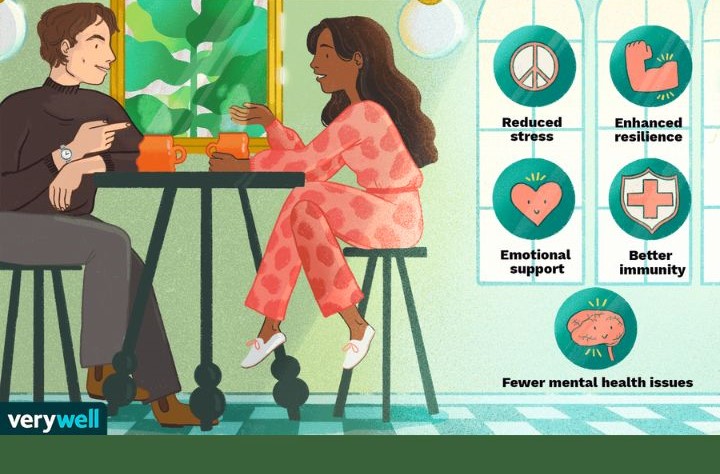In the realm of human connection, there are various types of relationships that shape our lives. Among them, platonic relationships hold a unique place. A platonic relationship is defined as a deep friendship or bond between individuals that does not involve sexual attraction or romantic intentions. The key difference between platonic relationships and romantic relationships is the lack of romantic or sexual feelings.
While a romantic relationship typically involves emotional intimacy, physical attraction, and a desire for a future together, a platonic relationship is purely about emotional connection and shared values. Platonic relationships often provide a safe space for individuals to express themselves without the pressure of romantic expectations.
Table of Contents
- What Are the Benefits of Platonic Relationships?
- 4 Types of Platonic Relationships
- 4 Tips for How to Start a Platonic Relationship
- How to Maintain Healthy Platonic Relationships
- Platonic Relationship FAQs
What Are the Benefits of Platonic Relationships?
Platonic relationships offer a range of benefits that enrich our emotional and mental well-being. Here are some key advantages of maintaining platonic relationships:
- Emotional Support
Platonic friends offer a reliable support system without the complexities often found in romantic relationships. They listen without judgment and provide comfort during challenging times. - Personal Growth
In a platonic relationship, individuals can explore their personal growth and development freely. Since there is no romantic pressure, these friendships often allow for more authentic conversations and self-expression. - Reduced Stress
Platonic relationships tend to be less stressful compared to romantic relationships because they are grounded in understanding and mutual respect rather than expectations of romance or commitment. - Stronger Social Connections
Platonic relationships help build a broader social network. The bond you share with a friend can often lead to introductions to other valuable relationships. - Preserving Independence
One of the biggest advantages of platonic relationships is that they allow individuals to maintain their independence while still enjoying meaningful connections. Unlike romantic relationships, platonic friendships do not require constant attention or dependency.
Types of Platonic Relationships
Platonic relationships are not one-size-fits-all. They come in various forms, depending on the individuals involved. Below are four common types of platonic relationships:
- Best Friends
This is the strongest form of a platonic relationship. Best friends share a deep emotional bond built on trust, respect, and shared experiences. These relationships often endure for years and provide a strong sense of comfort and understanding. - Mentor and Mentee
A platonic relationship between a mentor and mentee can be incredibly impactful. This relationship is based on guidance, knowledge-sharing, and mutual respect, without any romantic undertones. The mentor helps the mentee grow personally or professionally, fostering a relationship rooted in learning. - Workplace Friendships
Platonic relationships formed in the workplace are common and often essential for maintaining a positive and supportive work environment. These friendships are often based on shared goals, collaboration, and support during work challenges. - Family-like Friends
Some platonic relationships feel almost familial. These friendships often develop when individuals share similar backgrounds or experiences that create an immediate bond. These relationships are built on mutual care, respect, and unconditional love.
platonic relationships
Tips for How to Start a Platonic Relationship
Starting a platonic relationship is much like building any other form of connection, but with a focus on respect and mutual understanding. If you’re looking to form a platonic relationship, here are some practical tips:
- Be Genuine and Authentic
When trying to form a platonic relationship, it’s important to be yourself. Authenticity is key in any relationship, and platonic relationships thrive when both parties feel comfortable and accepted for who they truly are. - Start with Shared Interests
Platonic friendships often start when people find common ground. Whether it’s a hobby, interest, or shared goals, discovering mutual passions provides a natural foundation for building a strong connection. - Set Clear Boundaries
Healthy platonic relationships require clear boundaries. It’s important to define the nature of your relationship early on, ensuring that both parties are comfortable and aware of each other’s limits and expectations. - Communicate Openly
Communication is the cornerstone of any healthy relationship. To start and nurture a platonic relationship, maintain open and honest conversations. This helps prevent misunderstandings and strengthens the emotional bond.
How to Maintain Healthy Platonic Relationships
Maintaining a healthy platonic relationship requires effort, respect, and regular communication. Here are some effective ways to keep your platonic relationships strong and fulfilling:
- Show Appreciation – Regularly express gratitude for your platonic friends. Let them know how much you value their support and presence in your life. This helps strengthen the emotional bond and encourages mutual respect.
- Respect Personal Space – Even in platonic relationship, respecting personal space and individual needs is essential. Everyone needs time alone or with other people, so be mindful of each other’s personal boundaries and respect their autonomy.
- Stay Honest and Transparent – Open communication is critical in sustaining a platonic relationship. Share your feelings, concerns, and needs openly with your friend to maintain trust and avoid unnecessary conflict.
- Be Supportive During Tough Times – One of the best ways to strengthen your platonic relationship is to show up when your friend needs you the most. Whether they’re facing personal challenges or going through a rough time, being there for them solidifies the bond between you.
- Celebrate Milestones Together – Whether it’s birthdays, anniversaries, or personal achievements, celebrating milestones together strengthens the emotional connection. Even small gestures of celebration can make a big difference in your platonic relationship.
Platonic Relationship FAQs
- Can a platonic relationship become romantic?
Yes, while a platonic relationship is based on friendship, it’s possible for the feelings to evolve into something romantic. However, this shift is based on mutual feelings and requires open communication to ensure both parties are on the same page. - Is it possible for men and women to have a platonic relationship?
Absolutely. Platonic relationship can exist between individuals of any gender. The core of a platonic relationship is mutual respect, understanding, and shared values, rather than gender or romantic attraction. - How can I know if my relationship is platonic?
A platonic relationship is characterized by a deep emotional connection without romantic or sexual attraction. If you feel comfortable and emotionally supported without any desire for a romantic relationship, it is likely platonic. - What do I do if my platonic relationship starts to feel romantic?
If you find that your platonic relationship is shifting toward romantic feelings, it’s important to have an honest conversation with the other person. Discuss your feelings and establish where you both stand, ensuring that both individuals feel comfortable with the direction of the relationship.
Conclusion
Platonic relationships are a vital aspect of our social lives-offering emotional support, personal growth, and companionship without the complexities of romance. Whether they are friendships, mentorships, or familial-like connections, platonic relationship provide us with a sense of belonging and support. By understanding the nature of these relationships and nurturing them with respect and care, we can enjoy fulfilling and long-lasting connections with those around us.
Read more: Are We Dating the Same Guy
